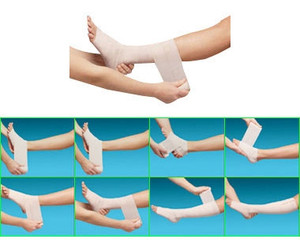

Standard 20 Food Handlers Kit (35 x 25 x 10cm)
The Standard 20 Food Handlers Kit is suitable for all areas where food is being handled or prepared. This kit contains all the contents specified in the Standard Kit 20 with the addition of some blue extras. The box is 35 × 25 × 10cm
Contents
1 x Burn Dressing 10×10cm1 x Blue Strapping 2.5cm x 5m40 x Blue Assorted Plasters6 x Blue Fingerbobs1 x Blue Fingerstalls1 x Guidance Leaflet10 x Non Alcohol Wipes12 x Safety Pins1 x Low Adherent Dressing 10×10cm1 x Low Adherent Dressing 5×5cm4 x Eye Pad with Bandage3 x First Aid Dressing Large9 x First Aid Dressing Medium1 x Tubular Bandage Size C – 1 Metre6 x Triangular Bandage Non Woven2 x Vinyl Gloves Non Sterile PairSupplied in empty green boxBlue Plasters
Food Safety Act 1990
It shall be a defence for the person charged to prove that he took all reasonable precautions and exercised all due diligence to avoid the commission of the offence by himself or by a person under his control.
Hence Blue Plasters are widely used in areas of food preparation from sandwich shops to butchers to cake manufacturers.
Why Blue Plasters?
Because it gives high visibility amongst food where the colour does not naturally occur.
Why Metal Detectable Plasters?
To detect contamination in cans and foil packaging as well as cartons, trays etc.
Sources of Contamination
- Raw materials – wire in fabric
- Personal effects – hair clips, coins, paper clips
- Maintenance – swarf following repairs
- In-Plant processing – metal slivers from knives
Steroplast Blue Plasters ARE:
- Visually Detectable
- Metal Detectable as non-ferrous. (The Steroplast Blue has an aluminium strip located behind the lint).
Steroplast Blue Plasters ARE NOT:
- Metal Detectable as ferrous (no ferrous component in the Steroplast Blue.
- X Ray Detectable (Steroplast Blues do not contain tungsten)
- Detectable when used in conjunction with food packed into aluminium foil trays.
The Detectability of Steroplast Blue Plasters
- Sensitivity of the Metal Detector. Ideal setting should be to 2.5mm non-ferrous
Metal Detectors respond to:
a) Amplitude Detection Rejects when the signal exceeds a pre-determined level. Ideal for longer metal pieces
OR
b) Narrow zone/zero crossover
Rejects when any signal is produced
Disadvantage is that when several different size pieces pass almost together the signal from the largest piece fools the detector, which may miss the following smaller piece.
Factors affecting sensitivity
i) Type of metal
Iron is easily detected, stainless steel is not
ii) Shape of metal Spheres are easier to detect than thin wire of the same metal – eg 1.5mm dia stainless steel ball equates to 1.6mm wire 8mm long for detection at the same setting.
iii) Orientation of metal in product
Due to the shape of the magnetic fields in a detector, certain parts of the field are more sensitive compared to others, therefore potential blind spots can occur.
iv) Environmental Conditions
A detector operating next to a hot oven, freezing tunnels or vibration affect sensitivity.
v) Product
Dry Products – eg cereals easy to detect metal
Fresh meat – creates an interference signal
Pickles – the vinegar creates a false signal
Treacle – very dense product high sensitivity required
To ensure metal detection at low sensitivities the setting pieces used are placed in the middle of products as well as on the product.
Therefore if changing from one type of product to another, the detector settings have to be changed due to the densities of the product.



